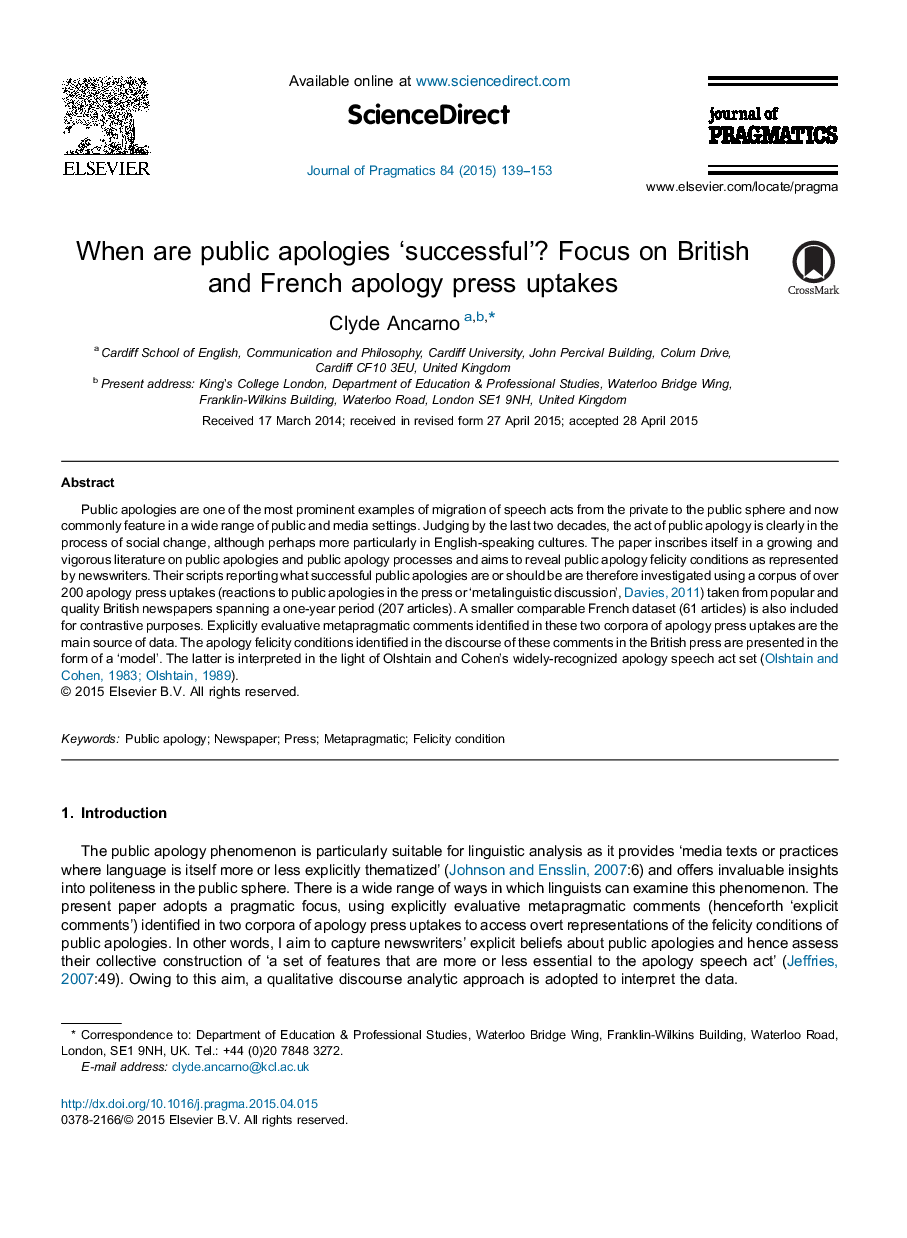ترجمه فارسی عنوان مقاله
هنگامی که عذر خواهی عمومی "موفق" است؟ تمرکز بر جذب عذرخواهی مطبوعات انگلیس و فرانسه
عنوان انگلیسی
When are public apologies ‘successful’? Focus on British and French apology press uptakes
| کد مقاله | سال انتشار | تعداد صفحات مقاله انگلیسی |
|---|---|---|
| 40322 | 2015 | 15 صفحه PDF |
منبع

Publisher : Elsevier - Science Direct (الزویر - ساینس دایرکت)
Journal : Journal of Pragmatics, Volume 84, July 2015, Pages 139–153
ترجمه کلمات کلیدی
معذرت خواهی عمومی - روزنامه - مطبوعات - متا عمل گرایانه - شرایط فلیسیتی
کلمات کلیدی انگلیسی
Public apology; Newspaper; Press; Metapragmatic; Felicity condition

